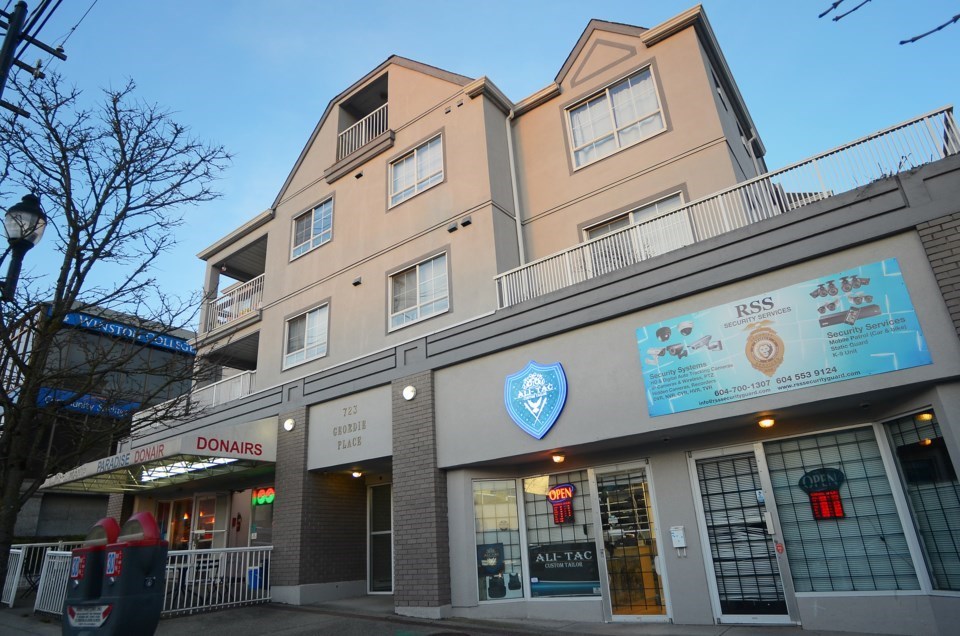More than 200 New Westminster condominium owners will not be allowed to live in their strata unit and must instead rent it out, following a March 30 Supreme Court of British Columbia ruling that upheld a controversial city bylaw.
The ruling has sent a chill through the residential development industry.
In July 2018, the province enacted rental tenure zoning authority to enable protection of the rental tenures in existing apartment buildings. In 2019, New Westminster City Council adopted Zoning Amendment Bylaws No. 8078 and 8123, making it the first municipality in the province to apply the newly granted residential tenure zoning powers to some of its existing rental housing stock.
Under the bylaw, the city designated 12 city-owned properties and six private properties for residential rental tenure. The retroactive bylaw was intended to preserve properties at 214 Agnes St., 215 10th St., 211 11th St., 425 12th St., 723 12th St. and 514 13th St. as rental only.
These properties were built as strata but have been operating as rentals for years.
In all six private properties account for 230 condominiums, but they have been stripped of their strata designation. These units must remain rental-only and cannot be owner-occupied, the city said, whether wholly owned by one entity or as units that are separately sold and held by individual entities.
After council approved the zoning amendment bylaw, the registered owners of all six strata properties took the city to court.
On March 30, the court upheld the bylaw.
“Rental tenure zoning has been an important tool used to respond to the real challenge of saving existing purpose-built rental housing,” said Mayor Jonathan X. Coté, in a statement. “We are pleased that the BC Supreme Court has upheld the city’s rental residential zoning powers so that we can preserve our rental housing stock and support our residents. We know that the housing crisis has been worsened by the pandemic and we are very committed protecting tenant rights.”
The city says the Zoning Amendment Bylaw No. 8123 will continue the residential rental tenure restrictions for the six stratified rental properties. These units must remain rental-only and cannot be owner-occupied, the city said, whether wholly owned by one entity or as units that are separately sold and held by individual entities.
“This ruling is a positive step in helping the city respond to a complex housing crisis, at a time when it’s more critical than ever,” said Emilie K. Adin, director of development services. “It supports the city’s understanding that residential rental tenure zoning is a viable tool for local governments, which is good news for many BC municipalities who may wish to use the new tool to protect existing rental housing stock.”
The affected condo owners could take a serious financial hit.
The real estate board’s benchmark price of a New Westminster condo apartment is currently $532,900, but the average per-suite price for a rental apartment building in the city is $324,900 and, in the most recent sale on Agnes Street, an apartment property sold for $280,000 per suite, according to a survey from Goodman Commercial Inc.
The Urban Development Institute, Vancouver, said the bylaw sets a dangerous precedent.
“Our members, investors, financial institutions will now question whether the city in the future, without consultation, will quickly downzone other properties in terms of tenure, land, use or density,” Anne McMullin, president and CEO of the Urban Development Institute said when the bylaw was introduced. “New Westminster’s previous deserved reputation as a reliable municipality for future commercial, industrial, strata or rental housing projects is at incredible risk.”
Scott Cressey of Cressey Development said the downzoning had left owners with no choice but to sue the city.
“You are sending a message out to the business community that you are not trustworthy. I don’t think that is the message you want,” Cressey stated in a message to the city when the bylaw was introduced. “You want to encourage people to build rental. You want us to build rental. You want other people to build rental.”
McMullin said downzoning is a critical concern for UDI members because the industry relies on a stable regulatory framework in which land is not devalued arbitrarily by governments with little or notice.



